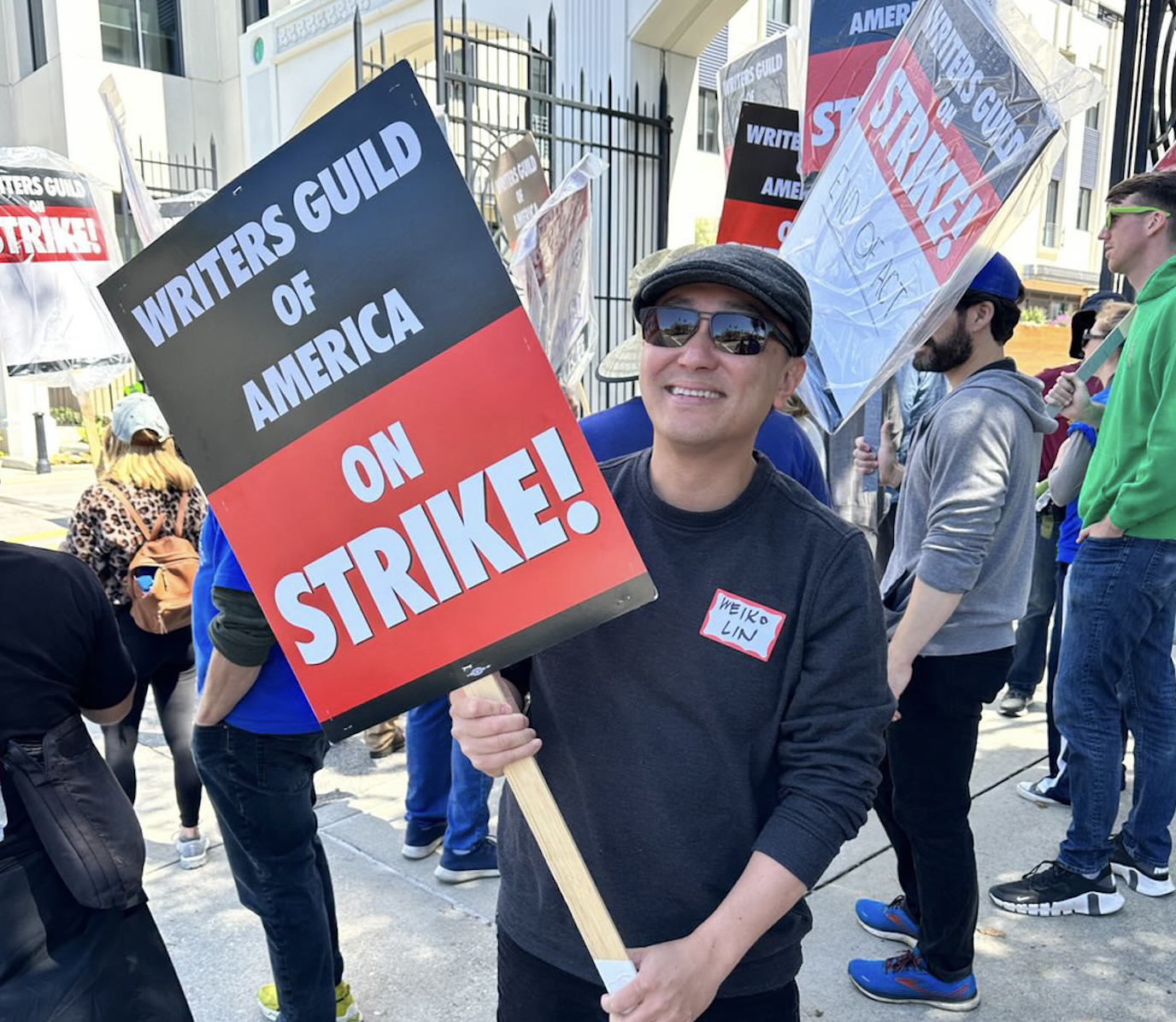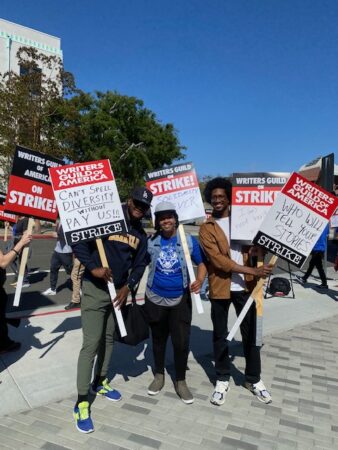
Negotiations between the Alliance of Motion Picture and Television Producers (AMPTP) and the Writers Guild of America (WGA) began March 20 and concluded May 1 without an agreement, resulting in the first writers’ strike since 2007-8. WGA’s Pattern of Demands asks for increased minimum compensation and residuals, contributions to pension and health plans, and general protections for writers, with regulation of material produced using artificial intelligence.
Miranda Banks, SFTV professor and author of “The Writers: A History of American Screenwriters and their Guild,” is considered an industry expert in WGA negotiations. Banks says: “Once a generation, technological changes in film and media transform not just the economics of the industry but also the nature of work. When this happens, systems of compensation for that creative labor often need to be renegotiated. This happened for writers with the coming of sound, with the advent of the television rerun, again with VHS, and then the DVD. A month after the last strike ended, Hulu officially launched and again the industry began to transform. Here we are, 15 years later, and streaming has so completely changed the landscape of film and media writing that the studios and writers again find themselves at the deadline without an agreement. And so the WGA called a strike.”
Karen Joseph Adcock ’18, whose work as a writer on FX’s The Bear resulted in a WGA Award for Outstanding Comedy Series, is one of many alums who joined the picket line on Tuesday, May 2. Though she feels incredibly lucky to work on many seasons of television, her success hasn’t come without frustration at the studios that fund the shows. “Short room orders, barriers to upward mobility, slow-coming and smaller residuals; and an outright refusal to acknowledge and support the need for writers on set have all made this a very unfair, diluted process,” Adcock says.

“The document that lists negotiation points and the studios’ responses is incredibly offensive,” she continues. One point on that published list of proposals asks to regulate the use of AI on MBA- covered projects. “AI can’t write or rewrite literary material; can’t be used as source material; and MBA-covered material can’t be used to train AI,” it reads. The response column notes that AMPTP rejected this demand and “countered by offering annual meetings to discuss advancements in technology.” This comes as industry leaders in the technology sector warn the public about AI, citing dangers including misinformation, job loss, and greater risks to humanity.
With the threat of technology looming, Daril Fannin ’17 claims to have the answer to Adcock’s frustrations. Fannin is the co-founder and CEO of KINO, a company on a mission to democratize the film and television industry by using blockchain technology to finance film. Adopting a fight fire with fire approach, he argues in favor of using technology to achieve fair compensation.
“Just like when iTunes replaced the CD for musicians and ebooks disrupted the traditional book release for authors, when streaming replaced the theatrical release model, the value of the marketplace changed and writers in Hollywood got left behind,” Fannin writes in The Wrap. “Corporate policies, culture and technologies are rapidly evolving, and in order to survive, writers need to adapt just as fast.”
According to Fannin, writers have a difficult time negotiating better deals because they aren’t well known. He writes: “If we can find ways to help creatives capitalize on their fan base and create tools that bring the audience not to the studios but to the creators, they could better leverage their power.”



